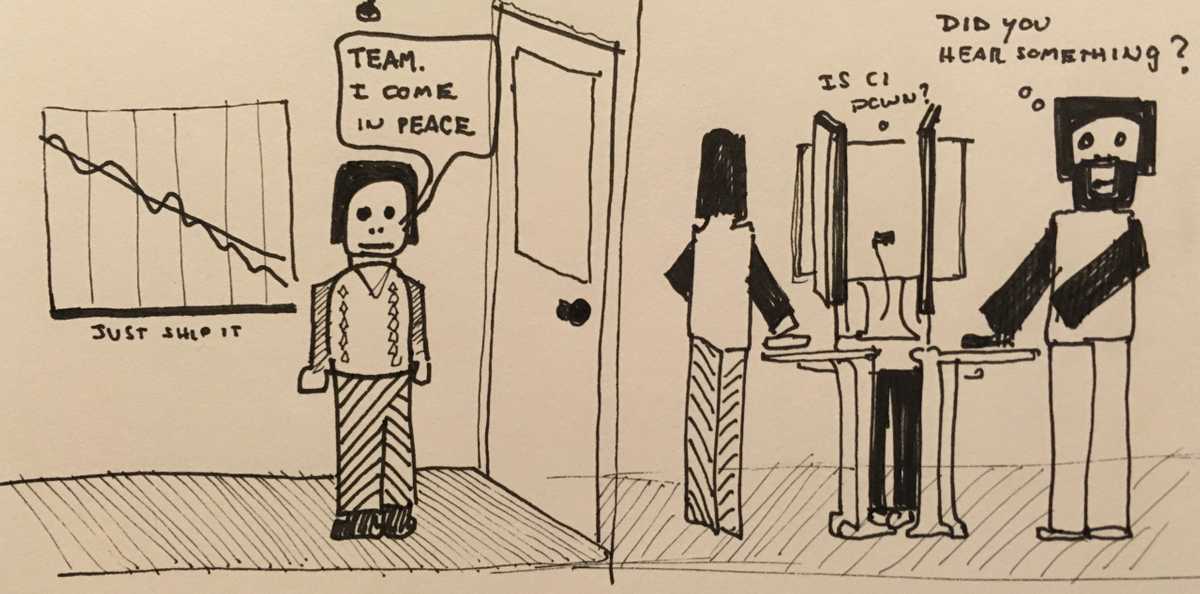 I frequently hear from Product Managers that want to break the vicious cycle of the Feature Factory
I frequently hear from Product Managers that want to break the vicious cycle of the Feature Factory
. You know it’s wrong for your team, and your customers, but you can’t break free. Sometimes you question whether product management is even the right profession.
Trust me. I’ve been there. There’s hope, and it all starts with you! It is time to reaffirm your commitment to your craft.
Update (12/16/2016): I recorded a 45 minute video talking about the 12 points and added shortcuts to each point below. My advice … read first, before jumping into the video.
- I WILL accept my own fallibility, and the power that cognitive biases have over my decision making (2:35)
- I WILL work to earn the trust of the team, and commit to creating a safe environment that is friendly to taking risks, practicing our craft, and being transparent and honest (5:20)
- I WILL refuse to make promises and commitments that impact the team, without first consulting with the team (8:36)
- I WILL respect the fact that makers need uninterrupted time to ponder, experiment, and build. I will make myself available at all times, but without interrupting and breaking the team’s flow (10:10)
- I WILL focus on making ALL of the people in our ecosystem — customers/users, immediate team members, extended team members, “the business”, investors, and partners — awesome. Not through coercion, or manipulation, but by always experimenting with things that might allow people to do their best work (11:55)
- I WILL detach from my pet solutions (and the solutions offered by HIPPOs and customers), and focus instead on gathering data about problems worth solving. The team (with me as a member) will decide which problems and solutions are worth pursuing (17:00)
- I WILL shorten the distance between the customer/user and the team, and resist the temptation to act as a go-between. Whenever possible, we will seek to let the customer represent themselves, and will refer to actual usage data in addition to what people say (19:32)
- I WILL work with the team to deliver continuous value (not features, or story points). When faced with big batches, we will work to decompose those batches, and deliver value (and learn) incrementally. With flow, many rituals (e.g. estimation) will fall by the wayside, and I will support the team’s decision to stop rituals that add no value. In terms of process, I will advocate for as little process as necessary to preserve safety, and challenge my own need for certainty and control (23:10)
- I WILL collaborate with the team to measure, iterate, and celebrate based on the actual impact of our work. We will fail often, but will leave sufficient time to learn from those failed experiments and deliver the best outcome possible (28:16)
- I WILL stop trying to “keep the team busy” at all costs, and will encourage the team to leave sufficient slack for personal projects, professional development, and having a life outside of work. Whenever possible, we will keep utilization rates at a reasonable level, and strive to deliver outcomes while at the same time “maximizing the amount of work not done” (29:50)
- I WILL respect the strong desire to not cut corners, and do whatever possible to promote the sound economics of “doing the job right” and/or committing as a team to address those cut corners at some point in the foreseeable future (33:30)
- I WILL reflect on the points above, seek feedback and coaching, accept and address my weaknesses, and continue to do what works (until it stops working). And I’ll take care of myself, meditate, and not become a stressed out / terrible person to be around (36:25) I’ve recently become a fan of Joshua Kerievsky’s four Modern Agile principles which dovetail nicely with these 12 points. They are worth checking out if you are sick of the “Agile industrial complex”.